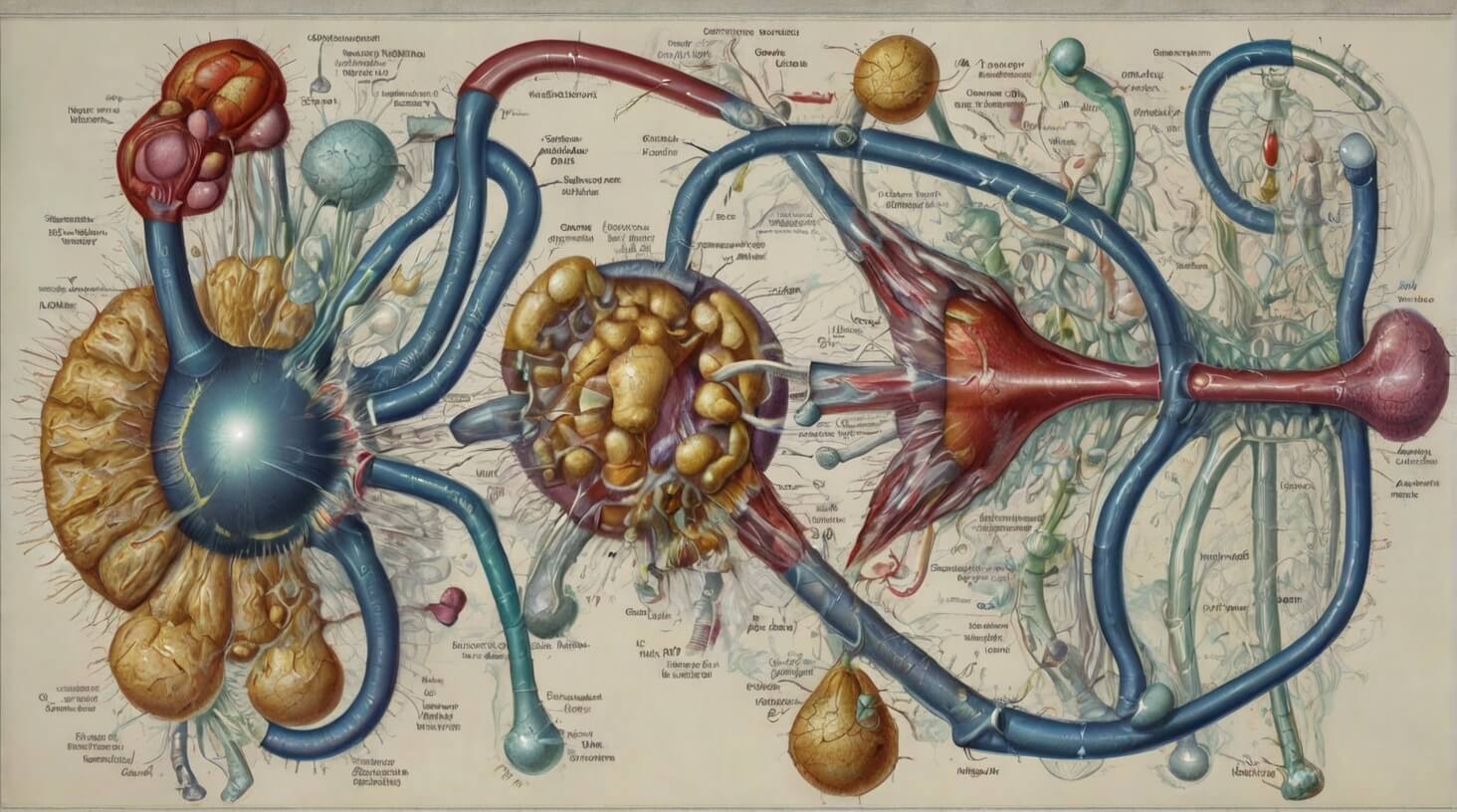You might think of zinc as the superhero of trace elements, swooping in to save the day when it comes to your body’s immune response. Indeed, your immune system relies on this mighty mineral to function at its peak, yet you’re probably unaware of the intricate dance it performs within your cells. As you navigate through the complexities of immune cells and the signals they send and receive, you’ll find zinc at the forefront, silently orchestrating vital processes that keep pathogens at bay. However, when zinc is scarce, it’s as though the entire defense system stumbles, leaving you vulnerable to a cascade of health issues. You’re about to uncover the pivotal role zinc plays in immune function, and why ensuring adequate levels of this nutrient is more than just a dietary concern—it’s a strategic defense for your well-being. So, what happens when this unassuming mineral is in short supply, and how might your body signal the need for reinforcement? Let’s explore the answers together and consider the implications for your health.
Key Takeaways
- Zinc is crucial for maintaining immune function and disruptions in zinc status can affect immune system performance.
- Zinc deficiency can impair immune function and increase susceptibility to infections, while zinc supplementation can help restore immune function.
- Zinc ions orchestrate intracellular signaling pathways in immune cells and zinc deficiency compromises immune signaling pathways.
- Zinc plays a bioactive role in shaping immune surveillance and response, and ensuring optimal zinc levels is important for maintaining immune function.
Zinc Metabolism Essentials

Zinc metabolism is crucial for maintaining immune function, involving a complex interplay of molecules that regulate its absorption, distribution, and excretion within the body. As someone focused on serving others, you must understand that zinc ions are vital for various biological processes, especially in bolstering the body’s defense mechanisms. Zinc homeostasis, the balance of zinc levels, ensures that cells have adequate supply without reaching toxic concentrations.
Zinc’s role in immune function is multifaceted. It acts as a signaling molecule and structural component for enzymes and transcription factors, which are pivotal for gene expression and protein synthesis. Zinc is required for the proper function of these proteins, and any disruption in zinc status can affect immune system performance.
The regulation of zinc within the body is mediated by zinc transporters, which manage the movement of zinc ions into and out of cells, and zinc-binding proteins that maintain its solubility and prevent uncontrolled reactions. These transporters and binding proteins are essential in maintaining zinc homeostasis, allowing the immune system to respond efficiently to challenges.
You should be aware that zinc deficiency, affecting two billion people worldwide, can significantly impair immune function, leading to increased susceptibility to infections and diseases. Conversely, zinc supplementation can benefit those with a malfunctioning immune system, providing an essential boost to their zinc status.
To effectively aid those in need, you must recognize the importance of zinc in immune function and the implications of zinc metabolism on health. By ensuring optimal zinc levels through diet or supplementation, you can support the immune defenses of those you serve.
Zinc Deficiency Impacts
Understanding the consequences of zinc deficiency is crucial, as it can lead to significant impairments in your immune system’s ability to fight off infections and diseases. Zinc is a vital mineral that plays a pivotal role in both the innate and adaptive immune responses. As a healthcare provider or someone invested in the welfare of others, it’s important to recognize the signs of zinc deficiency and understand its profound impact on immune function.
Zinc deficiency disturbs the innate immune system by affecting the function of natural killer cells and neutrophils, which serve as the first line of defense against pathogens. In the adaptive immune system, zinc is essential for the development and function of T cells, which are critical for a robust immune response. Without adequate zinc, there’s a decrease in cytokine production, impairing communication between immune cells and compromising the body’s ability to mount an effective defense.
Here is a table highlighting the impacts of zinc deficiency on immune function:
| Immune Aspect Affected | Consequence of Zinc Deficiency |
|---|---|
| Natural Killer Cells | Reduced ability to eliminate infected cells |
| Neutrophils | Impaired phagocytic activity, leading to increased susceptibility to infections |
| T Cells | Diminished development and function, weakening the adaptive immune response |
| Cytokine Production | Decreased signaling, affecting immune cell coordination and response |
Zinc supplementation can help restore immune function and protect against the negative effects of zinc deficiency. Being aware of this can empower you to better assist those you’re dedicated to serving, ensuring they receive the necessary nutrients to maintain a robust immune system.
Zinc Signaling Mechanisms

Delving into the cellular level, it’s essential to acknowledge how zinc ions orchestrate complex intracellular signaling pathways that are fundamental to the proper functioning of both innate and adaptive immune cells. As the second most abundant metal in the human body, zinc is crucial for immune function: the biological significance of zinc signals cannot be overstated.
In the realm of zinc signaling mechanisms, the dynamic balance of intracellular free zinc is meticulously controlled by a sophisticated system involving ‘importers’, specifically ZIP (Zrt- and Irt-like protein) transporters 1-14, and ‘exporters’, known as ZnT (zinc transporter) 1-10. These transporters, together with a host of zinc-binding proteins, ensure that zinc modulates signal transduction processes precisely, without excess or deficiency that could disrupt cellular functions.
Zinc plays a pivotal role in cell activation, influencing the signaling pathways that govern the behavior of dendritic cells, T cells, and B cells. These cells are central to the crosstalk between the innate and adaptive immune systems, and their coordination is significantly affected by zinc. For instance, zinc signaling can dictate the differentiation and proliferation of these immune cells, which is critical for mounting an effective response to pathogens.
Moreover, zinc’s anti-inflammatory and anti-oxidant properties further illustrate its integral role in maintaining immune health. A deficiency in zinc can severely compromise these signaling pathways, leading to diminished immune responses. Hence, ensuring adequate zinc levels is paramount for the robust operation of the immune system, demonstrating that zinc is not just a nutrient but a bioactive molecule that actively shapes immune surveillance and response.
Immune Cells and Zinc
Your body’s immune cells rely heavily on zinc to modulate vital signaling pathways and maintain homeostasis, ensuring a swift and effective defense against pathogens. This essential trace element is crucial for the function of various immune cells, including T cells, natural killer cells, and neutrophils. Zinc ions participate actively in intracellular signaling, influencing the behavior and response of these cells during an immune reaction.
The role of zinc within your immune system is multifaceted. It acts as an anti-inflammatory and anti-oxidant agent, reducing damage from oxidative stress and helping to control the inflammatory response. This is paramount in preventing excessive inflammation that can be harmful to tissues.
Zinc’s interaction with T cells is particularly critical. It influences their development, differentiation, and subsequent response to infections. A deficiency in zinc can lead to a dysregulated immune response, often resulting in an increased susceptibility to infection and disease. Moreover, zinc is integral to the cytolytic activity of natural killer cells, enhancing their ability to target and destroy infected or malignant cells.
Neutrophils, your first line of defense against invading pathogens, also need zinc to carry out their function effectively. The presence of zinc helps modulate cytokine production, ensuring that these cells can communicate and orchestrate a proper immune response.
Balancing zinc homeostasis is essential, as both deficiency and excess can negatively impact immune function. Therefore, maintaining adequate zinc levels through diet or supplementation can be beneficial, particularly for those with a malfunctioning immune system or those at risk of deficiency. Remember, the potency of your immune defense is, in part, dependent on the availability of zinc within your cells.
Transcription Factors Modulation
Building on the importance of zinc for immune cell function, it’s crucial to explore how this mineral influences the activity of transcription factors, thereby shaping the genetic blueprint of your immune response. Zinc affects gene expression through the modulation of transcription factors, which are pivotal in orchestrating the intricate signaling cascades that govern your body’s defense mechanisms.
As outlined in the zinc fact sheet, zinc is involved in the regulation of several transcription factors, including those that control the development and function of regulatory T cells. These cells are essential for maintaining immune tolerance and preventing overzealous immune reactions that could lead to autoimmunity. Altered zinc levels can disrupt the balance of these cells, highlighting zinc’s key role in immune system regulation.
Zinc’s regulatory influence extends to protein kinase C (PKC), a family of enzymes that play a significant role in signal transduction processes. PKC is involved in activating various transcription factors that mediate the immune responses. Therefore, zinc’s interaction with PKC and subsequent transcription factors modulation can have profound effects on how your immune system responds to challenges.
In the context of transcription factors modulation, the impact of zinc spans from the initial signal to the final execution of immune responses. A deficiency or an excess of zinc can lead to aberrant gene expression, which, in turn, can cause dysfunctional immune reactions. Understanding zinc’s pivotal role in transcription factor activity not only provides a deeper insight into its immunomodulatory effects but also underscores the importance of maintaining adequate zinc levels for the optimal functioning of your immune system.
Epigenetics in Immunity

Zinc’s pivotal role in immune function extends beyond direct interactions with transcription factors, also encompassing epigenetic modifications that can alter gene expression in immune cells. As a vital trace element, zinc influences both innate and adaptive immune responses. You’ll find that zinc homeostasis, maintained by a balance between zinc importers, exporters, and binding proteins, is crucial for proper immune function.
In the realm of human T cells, zinc deficiency can significantly impair immune response. This is because zinc is a key player in the proliferation of T cells, cell maturation, and overall cell activity. Without adequate dietary zinc, T cells may not develop or function properly, potentially compromising the body’s ability to defend against pathogens.
Furthermore, epigenetics in immunity involves complex mechanisms whereby zinc acts as a modulator. It affects DNA methylation and histone modification, which in turn can alter gene expression profiles in immune cells. These changes can have lasting effects on how the immune system responds to challenges.
Zinc also offers protection against oxidative stress by neutralizing reactive oxygen species, which can damage DNA and other cellular components. This antioxidant property further highlights zinc’s anti-inflammatory effects, underscoring its importance in maintaining a balanced immune response.
For those committed to serving others, understanding the consequences of zinc deficiency is imperative. Ensuring adequate zinc intake through diet or supplementation can help bolster immune defenses, which is especially critical for individuals with compromised immune systems. Your knowledge and recommendations can make a decisive difference in improving immune health and resilience.
Disease Contexts and Zinc
Understanding the interplay between zinc levels and disease progression is critical, as zinc deficiency is implicated in numerous health conditions ranging from autoimmune disorders to metabolic syndromes. You’ll find that zinc’s role is multifaceted, influencing various aspects of the immune response and, subsequently, disease outcomes.
- Effects of Zinc on Immune Function
- Zinc acts as a modulator of the immune system, with the deficiency leading to a compromised defense against pathogens.
- This trace element is vital for the function of immune cells, including neutrophils and natural killer cells, which are essential for the innate immune response.
- The role of zinc in the development and activation of Th1 cytokines suggests its importance in shaping adaptive immunity and its potential to influence autoimmune diseases.
- Zinc Deficiency and Susceptibility to Disease
- A lack of zinc can increase susceptibility to a variety of infections and chronic diseases due to impaired immune function.
- Chronic inflammation, often exacerbated by zinc deficiency, is a common thread linking many degenerative diseases, such as diabetes and atherosclerosis.
- Inflammatory cytokines, whose production can be dysregulated by insufficient zinc, play a pivotal role in the pathology of autoimmune conditions.
- Therapeutic Potential of Zinc in Disease Management
- Supplementation with zinc has shown promise in reducing the severity and duration of certain diseases, particularly those with an inflammatory component.
- The impact of zinc on dendritic cells further illustrates its therapeutic potential, as these cells are crucial for initiating immune responses.
- By restoring zinc homeostasis, one may help modulate chronic inflammation and autoimmune responses, offering a supportive strategy in disease management.
Through these mechanisms, you can appreciate the substantial influence that zinc exerts on health and disease. It’s essential to maintain adequate zinc levels to support the immune system’s ability to combat various diseases effectively.
Nutritional Strategies for Zinc
Given the crucial role of zinc in bolstering the immune system and mitigating disease susceptibility, it’s imperative to explore nutritional strategies that ensure adequate zinc intake and address the prevalence of deficiency, especially among the elderly. Zinc’s contributions to immune functions are multifaceted, including the development and activation of natural killer cells, modulation of zinc concentrations for gene expression, and maintenance of cellular functions essential for the immune response.
You must recognize that zinc deficiency can compromise DNA synthesis, reduce the activity of protein kinase C, and exacerbate oxidative stress, all of which are critical in immune system regulation. To tackle these issues, dietary recommendations should focus on increasing the consumption of zinc-rich foods, such as meats, shellfish, legumes, seeds, nuts, dairy products, whole grains, and certain vegetables. For those unable to meet their zinc requirements through diet alone, such as the elderly or individuals with malabsorption issues, zinc supplementation may be necessary. However, supplementation should be approached cautiously, as excessive zinc can disrupt immune function and interfere with the absorption of other essential minerals.
Moreover, strategies to enhance the bioavailability of zinc are essential. This includes reducing the intake of phytates found in certain plant-based foods, which can bind to zinc and inhibit its absorption. The use of food preparation techniques, such as soaking, fermenting, or sprouting grains and legumes, can decrease phytate levels and increase the availability of extracellular zinc.
In serving others, especially those at risk of zinc deficiency, a comprehensive approach involving balanced dietary planning, careful supplementation, and lifestyle modifications can effectively support immune health and reduce disease risk.











